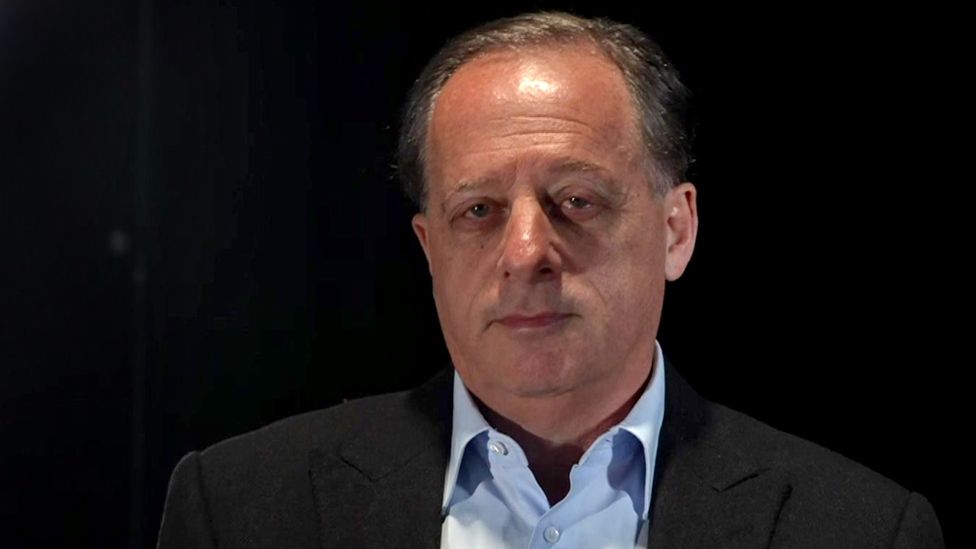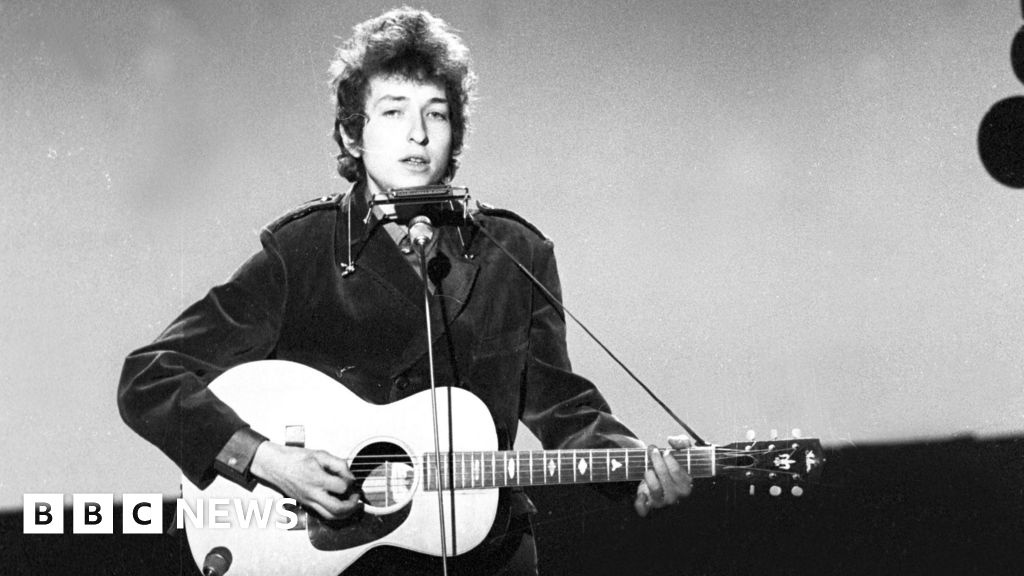ARTICLE AD BOX

Richard Sharp is currently awaiting the outcome of a KC-led review into his appointment
By Ian Youngs
Entertainment & arts reporter
An ex-BBC director general has said he does not think chairman Richard Sharp's "appointment should stand" because he was an "unsuitable candidate" and the process was "fatally flawed".
Mr Sharp is facing pressure over his role in facilitating an £800,000 loan for then-prime minister Boris Johnson.
John Birt, who was director general from 1992 to 2000, said the "cosiness" of the arrangement made him unsuitable.
Mr Sharp's appointment is being investigated. He denies any wrongdoing.
"I don't think his appointment should stand," Lord Birt told MPs on the House of Commons' Culture, Media and Sport committee.
"He's a person of obvious weight and consequence, but in one vital respect he was an unsuitable candidate, and the appointment process itself was fatally flawed."
A former Conservative donor, Mr Sharp acted as a "go-between" for his friend Sam Blyth, a distant cousin of Mr Johnson, who said he would be willing to act as guarantor on the loan after learning the then-PM was in financial difficulty.
Lord Birt said: "The unsuitability came from the very process of navigating a loan for the prime minister at exactly the same time as applying for the job at the BBC.
"It's the cosiness of that arrangement that made it unsuitable, and I wish the cabinet secretary had called it out."
BBC chairman: I regret the distraction this has caused
Mr Sharp has said he met the cabinet secretary, Simon Case, in December 2020 to tell him Mr Blyth wanted to get in contact to offer financial help to the PM.
At that meeting, Mr Sharp also said he would have no more to do with the matter because he was applying to be BBC chairman.
Lord Birt told the committee he thought the cabinet secretary made "a grave error" by letting Mr Sharp proceed with his application.
"When Richard Sharp approached him about the financial arrangement, he [Mr Case] should have advised both Richard Sharp and the prime minister that the cosiness of these arrangements, already at that point discussed with the prime minister, disqualified Richard Sharp as a candidate for the BBC chairmanship.
"The cabinet secretary, in my view, should have advised both him and the prime minister of this at that point, and suggested that Richard Sharp should withdraw from the process."
The BBC chairman is appointed by the government and must be approved by the cross-party committee.
The committee recently criticised Mr Sharp for failing to mention his involvement in events surrounding the loan when he appeared before them when they were considering his suitability for the job.
Lord Birt said it would be premature to call for Mr Sharp to resign before the outcome of a KC-led review into his appointment.
"I think we have to wait for the report," Lord Birt said. "Everything I've said is based on the evidence as we have it up to date, in large part because of the evidence he gave to this committee.
"But this investigation has taken quite a long time... and we've got to be just a bit careful that more may come out, which could cast a different light on on what happened."
The BBC is also conducting its own internal review over any potential conflicts of interest Mr Sharp may have in his role.
'BBC reputation at risk'
Chris Patten, a former Conservative Party chairman and former chair of the BBC Trust, said Mr Sharp was in a "difficult" position.
"I think I would find it very difficult to go out and do a news conference defending the BBCs due impartiality just at the moment if I was in his boots, and I think that's unfortunate because I think that's what he should be doing."
Asked whether Mr Sharp should resign, Lord Patten replied: "I've tended in life not to go around telling other people to resign, but I don't think that were he to do so I would write a letter of condolence."
The issue "risks the reputation of the BBC as being a public service broadcaster of spectacular integrity and independence", he added.

 1 year ago
28
1 year ago
28








 English (US) ·
English (US) ·